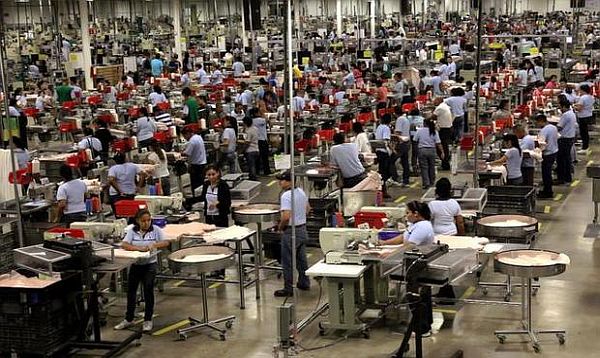President Donald Trump has gone after Mexicans for 'stealing U.S. jobs.' Now he's trying to get workers south of the border a pay raise.
It would be in America's self-interest. Trump wants to stop U.S. companies from moving to Mexico, where workers earn a quarter of what U.S. counterparts make. Closing that gap might convince American firms to stay, which is why U.S. negotiators will push for higher wages and better conditions for Mexican workers when negotiations on revising the North American Free Trade Agreement get underway Aug. 16 in Washington.
With Mexican wages the lowest among the world's more developed nations, labor reform is a juicy target to meet Trump's demand to get a better deal for US workers or walk away from the 1994 pact.
While Mexican officials are willing to make some changes, jobs and wages will become a sticking point if Trump goes too far and uses the issue as a blunt tool to curb last year's $64 billion trade deficit in goods. Mexico argues that its lower cost of production has competitive benefits for all of North America.
The Trump administration "will push hard, and I think rightly so, on labor standards," said Gerardo Otero, a professor at Canada's Simon Fraser University who has published more than 100 articles or books on Mexico and Latin America. "If Mexican prices increase due to wage increases, there might be a chance of closing the gap."
NAFTA originally included a side agreement to protect workers' rights that was never formally incorporated in the deal. The Trump administration said last month that bringing labor provisions into the core of the agreement is a priority.
The U.S. already has a head start on the issue, with Mexico agreeing on labor reforms as part of the Trans-Pacific Partnership pact, which Trump withdrew from shortly after taking office. Commerce Secretary Wilbur Ross said in a May interview the TPP shift is a good starting point for the U.S. in NAFTA talks.
"It has nothing to lose by taking the TPP pact as a point of departure and negotiating from there," said Hugo Perezcano Diaz, former chief of trade practices at Mexico's Economy Ministry and a deputy director at the Centre for International Governance Innovation in Waterloo, Ontario.
While tough labor rules and talk of cutting the trade deficit could be a short-term political win for Trump, the real boost to the U.S. would be deeper changes that make all three nations more competitive, he said.
The NAFTA treaty covers more than $1 trillion dollars of annual trade, which has more than tripled since 1993.
Source: journalgazette.net


